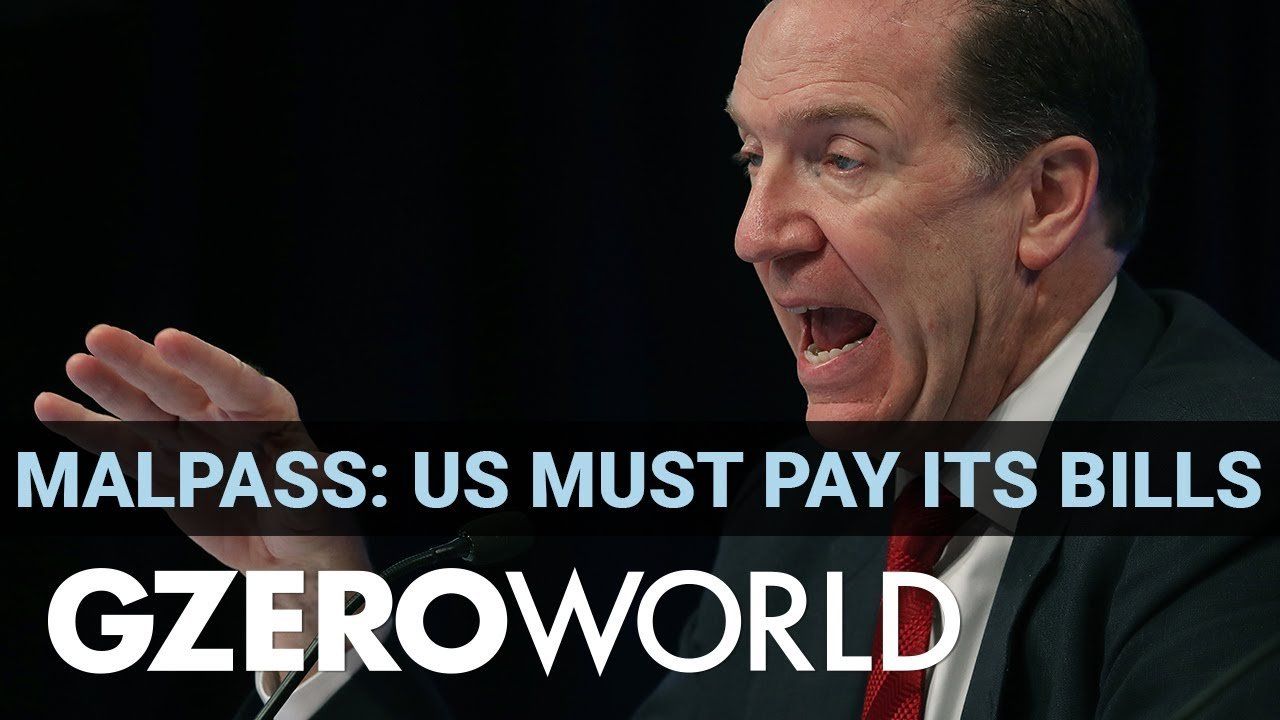
The debate in the US Congress around the debt limit and a potential default is like spending money on a credit card but refusing to pay the bill, according to David Malpass, outgoing president of The World Bank Group.
On GZERO World with Ian Bremmer, Malpass discussed the ongoing negotiations in Washington to avert a default and raise the debt ceiling before the federal government runs out of money on June 1. If the two sides can’t come to an agreement, Malpass says, the economic consequences will be “destabilizing.”
As a global financial leader, Malpass believes the US should consider rewriting the law so there’s no threat of default and adds that putting pressure on lawmakers might be the most effective way to get Congress to take action.
“If you’re over the debt to GDP limit, don’t pay salaries to senior government workers, to congressmen,” Malpass argues.
In this clip, learn why Malpass thinks Congress will come to a last-minute agreement and why minting a trillion-dollar coin to solve the problem is a very bad idea.
Watch the full episode of GZERO World with Ian Bremmer on PBS airing soon on US public television. Check local listings.
- Debt ceiling deal: long way to go in little time ›
- Pete Buttigieg explains: How the debt limit impacts transportation ›
- Chris Christie weighs in on US debt limit fight ›
- US debt limit: default unlikely, dysfunction probable ›
- Will the US default on its debt? Ask GZERO World's guests - GZERO Media ›
- Debt limits of rich countries hurt poor countries' growth, says World Bank's Malpass - GZERO Media ›
- Podcast: Fix the global debt crisis before it's too late, warns World Bank's David Malpass - GZERO Media ›